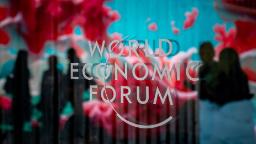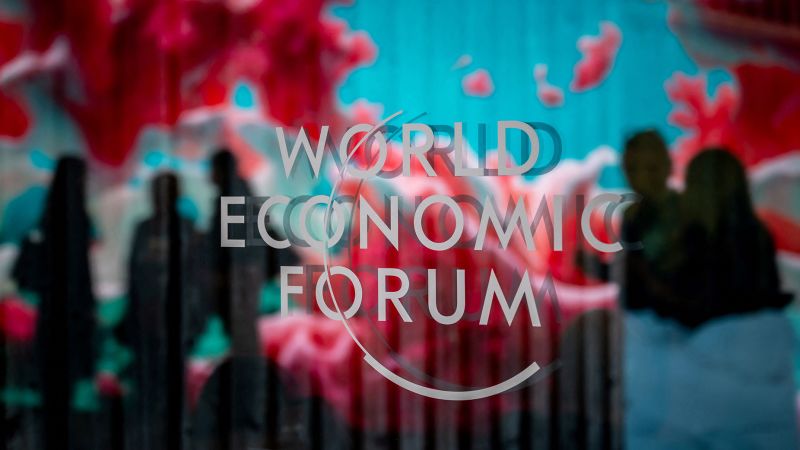
New York
CNN
—
The World Economic Forum’s annual meeting at Davos has long been a lightning rod for conspiracy theories. Extremist figures such as Infowars host Alex Jones have reliably used the event to drive up fear and paranoia about sinister schemes the “globalists” are supposedly plotting.
In the past, however, these farcical conspiracy theories have largely been confined to the fringe corners of the internet — places like Infowars. But in recent years, that has changed. The radical ideas promoted by the likes of Jones have gone mainstream, having been popularized by some of the most influential personalities in right-wing media.
Take Glenn Beck for example. The right-wing media personality, who wrote a conspiratorial book called “The Great Reset” playing off the WEF’s 2020 Covid theme, mocked the idea on Tuesday that conspiracy theories circulate around the event, while simultaneously giving oxygen to some of those very theories when he interviewed a guest who claimed, unchallenged, that the gathered world leaders “want you to eat insects rather than meat.”
A version of this article first appeared in the “Reliable Sources” newsletter. Sign up for the daily digest chronicling the evolving media landscape here.
It’s not just Beck who is using the event to push this fringe rhetoric. New Twitter owner Elon Musk, who responded on Sunday to a conspiratorial thread about the gathering at Davos, said the “S in ESG,” which stands for WEF’s “environmental, social, and governance” criteria, “stands for Satanic.” (Musk also claimed he was invited to the gathering, but organizers said he was not on the guest list.)
Alex Friedfeld, associate director with the ADL Center on Extremism, told me Tuesday that the use of extreme rhetoric and the endorsement of conspiracy theories from leading voices on the right has resulted in the outlandish claims reaching far more people than they once did.
“The fact is that these conspiracies have bounced around in more fringe parts of the internet,” Friedfeld said. “But when you have folks like Tucker Carlson or Glenn Beck — they start to normalize these conspiracies, they expose millions of more people to these ideas.”
In particular, Friedfeld pointed to “The Great Reset” conspiracy theories, noting that the term has “largely been divorced” at this point from its 2020 Covid origins and become “a broad brand for conspiracies” about how global elites are plotting to use the masses for their own benefits. Friedfeld said that, in particular, the use of the term “The Great Reset” by mainstream figures is cause for alarm because it can send people down a rabbit hole.
“You go searching for whatever version they’re talking about on Fox News and all of a sudden you’re exposed to all these other conspiracies that fall under the same umbrella,” Friedfeld explained.
The Associated Press’ Sophia Tulp reported this week that use of “The Great Reset” has been on a steady rise at Fox News. Tulp said the term was mentioned on the right-wing talk channel 60 times in 2022, up from 30 mentions in 2021, and 20 in 2020. Tulp added it was most mentioned on Carlson’s show and Laura Ingraham’s.
The danger of conspiracy theories has not been lost on attendees at Davos. On a Tuesday panel moderated by Brian Stelter, A.G. Sulzberger, publisher of The New York Times, described disinformation as one of the most pressing problems facing society.
“I think if you look at this question of disinformation, I think it maps basically to every other major challenge that we are grappling with as a society, and particularly the most existential among them,” Sulzberger said. “So, disinformation and in the broader set of misinformation, conspiracy, propaganda, clickbait … the broader mix of bad information that’s corrupting the information ecosystem, what it attacks is trust.”
“And once you see trust decline, what you then see is a society start to fracture, and so you see people fracture along tribal lines and, you know, that immediately undermines pluralism,” Sulzberger added. “And the undermining of pluralism is probably the most dangerous thing that can happen to a democracy. So I really think if you’re spending this week thinking about the health of democracies and democratic erosion, I think it’s really import to work your way back up to where this starts.”

